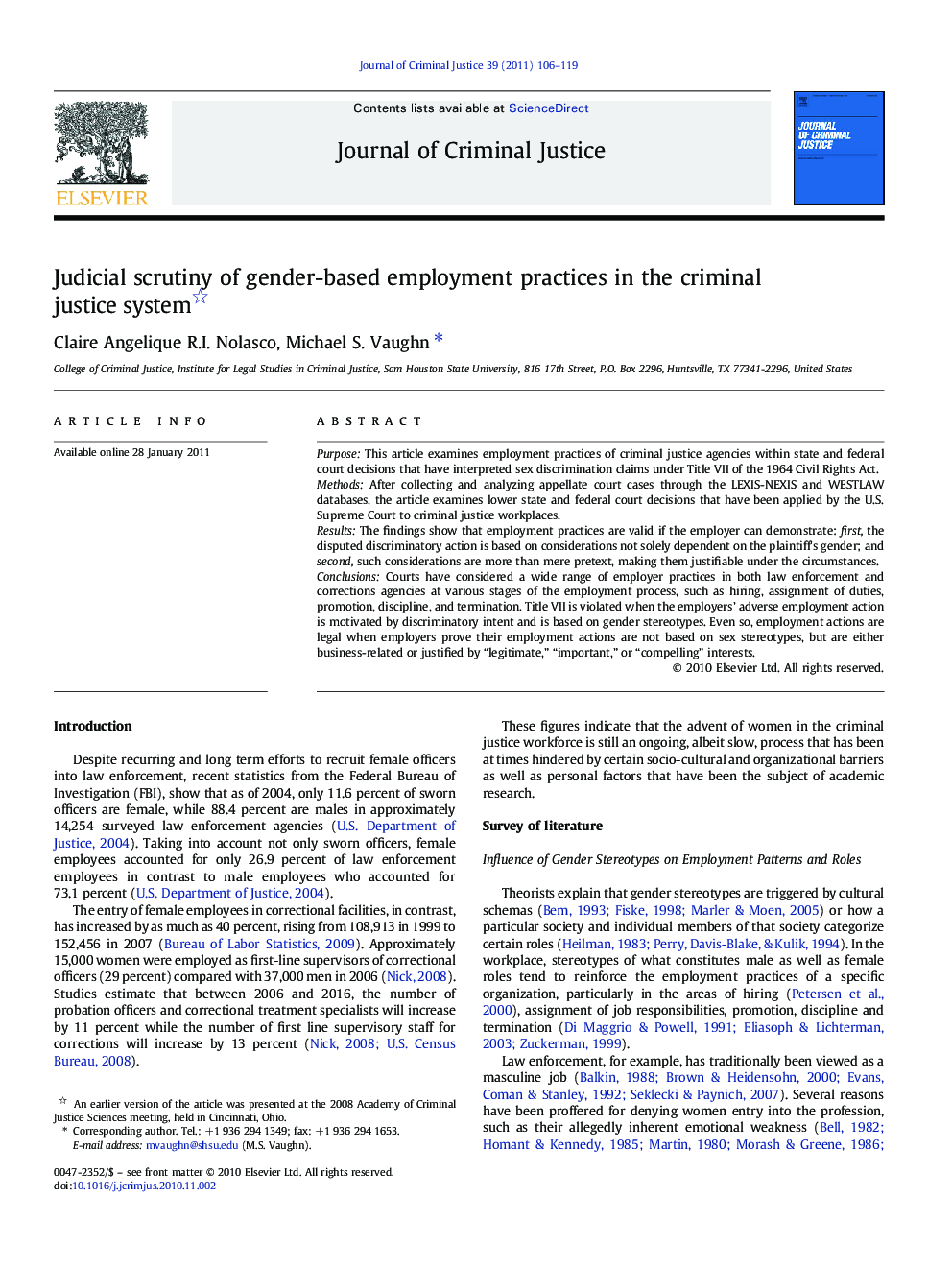| کد مقاله | کد نشریه | سال انتشار | مقاله انگلیسی | نسخه تمام متن |
|---|---|---|---|---|
| 883020 | 912040 | 2011 | 14 صفحه PDF | دانلود رایگان |

PurposeThis article examines employment practices of criminal justice agencies within state and federal court decisions that have interpreted sex discrimination claims under Title VII of the 1964 Civil Rights Act.MethodsAfter collecting and analyzing appellate court cases through the LEXIS-NEXIS and WESTLAW databases, the article examines lower state and federal court decisions that have been applied by the U.S. Supreme Court to criminal justice workplaces.ResultsThe findings show that employment practices are valid if the employer can demonstrate: first, the disputed discriminatory action is based on considerations not solely dependent on the plaintiff's gender; and second, such considerations are more than mere pretext, making them justifiable under the circumstances.ConclusionsCourts have considered a wide range of employer practices in both law enforcement and corrections agencies at various stages of the employment process, such as hiring, assignment of duties, promotion, discipline, and termination. Title VII is violated when the employers’ adverse employment action is motivated by discriminatory intent and is based on gender stereotypes. Even so, employment actions are legal when employers prove their employment actions are not based on sex stereotypes, but are either business-related or justified by “legitimate,” “important,” or “compelling” interests.
Research Highlights
► This study examines sex discrimination claims against criminal justice agencies.
► Employment practices are tested using two theories: disparate impact and disparate treatment.
► Each theory uses distinct burden shifting procedures and applies different employment practices.
► Policy implications are described for criminal justice agencies to ensure their legality.
Journal: Journal of Criminal Justice - Volume 39, Issue 2, March–April 2011, Pages 106–119